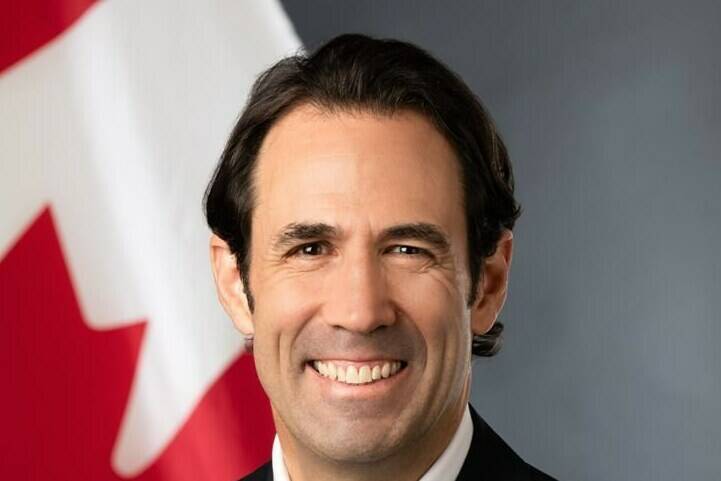Canada’s ambassador to Haiti says he hopes the world will move faster to help the country emerge from a prolonged period of lawlessness that has other Caribbean leaders on edge.
“When it comes to Haiti, nothing is moving fast enough,” André François Giroux said in an interview this week.
“The needs are critical. You’ve got three crises in parallel here: humanitarian, safety and political.”
For more than three years, Haiti has faced violence, widespread sexual assaults and a hunger crisis. Violent gangs have filled a power vacuum, taking over the capital of Port-au-Prince in brazen gun battles before spreading to rural regions and occupying farms.
Kidnappings are pervasive in Haiti. When asked how many Canadians have been taken in by gangs, Global Affairs Canada said the number of Canadian citizens requesting consular assistance in Haiti for any reason was 175 in 2022. The number stands at 134 so far this year.
In October, the United Nations Security Council approved a military intervention to be led by Kenya, to try stopping the gang violence.
Washington had originally suggested Ottawa could lead such a mission, given Canada’s outsized role in Haiti, a francophone country that is a major recipient of Canadian aid, tourists and remittances.
The Liberals have largely ruled out the idea of Canadian troops being part of the intervention, but Canadian officials have said the RCMP will likely send police.
Giroux was appointed to the role in September. His most recent posting was in Australia, but his experience with Haiti dates back to the late 1990s, when he was helping to remotely co-ordinate Canada’s efforts in a UN police-training mission to deal with previous instability.
He said the RCMP largely focused on community policing, in an effort to sow ties between law enforcement and locals that could build trust and reduce low-level crime.
Giroux said that’s still a good model in the long term, but Haitian police are beset by officers leaving the country, and a total collapse of the security situation.
“A lot of the training that we will be doing is to (equip) them, so that they can push back the gangs,” he said.
Canada is also leading an effort to co-ordinate the training and goods that various countries donate to the Haitian National Police. Canadian technical advisers are trying to ensure the force has the same types of vehicles and weapons, instead of a patchwork of supplies that would be hard for the Caribbean nation to maintain.
“It’s a lot of small little things, but 23 or 24 years (after the training mission), what you have now is equipment that is not up to par, that is missing, that is not working,” he said.
Meanwhile, Canada is continuing to push for a political consensus in Haiti on how the country can best hold free elections.
Currently, all elected terms in Haiti have expired, while the country has been led by unelected Prime Minister Ariel Henry ever since the assassination of the president in 2021.
“The reality is we’re in a complete legal void,” Giroux said.
He did not have an answer for when a political consensus will be reached, but said Canada is committed to solutions developed by Haitians themselves.
Giroux added that this consensus needs to come soon, so that there’s a clear plan for what happens after the looming military intervention.
“From our point of view, once Haitian society gives us the feedback that yes, indeed, we have here the critical mass that is necessary to really move forward, I think that will be enough for us,” he said in French.
Canada has rebuffed groups who claim to have a consensus, such as a coalition that signed a document called the Montana Accord, arguing those groups are important but don’t represent enough Haitians.
He also said that Canada will continue to work with Henry, despite him being a divisive figure, until Haitians point to another leader whom the international community should work with.
“We believe that he is working toward elections; it hasn’t been simple,” Giroux said in English.
Last month, Prime Minister Justin Trudeau met with Henry in Ottawa, and his office put out a statement noting “the urgent need for a power-sharing agreement between Haitian Prime Minister Ariel Henry and opposition groups.”
Giroux was in the room for closed-door talks, where he said Trudeau “had very direct messages” for Henry.
Other Caribbean leaders who were gathered for a summit said publicly that they are already seeing a spread of guns, gangs and migrants from Haiti.
“The message was received; we feel that there has been some genuine movement from everybody since,” Giroux said. “I’m an optimist, but I do believe that they moved the needle.”
Meanwhile, Canada is still urging other countries to sanction Haitian elites. A year ago, Ottawa started barring political and economic elites from dealings with Canada in the hopes of pressuring them to stop allegedly empowering gangs sowing chaos in Haiti.
Those who get sanctioned sometimes have their domestic accounts closed by Haitian banks, which are jittery about losing the ability to receive funds from Haiti’s huge diaspora in Quebec.
Canada has now sanctioned 28 people, yet France and the European Union have not listed a single person, other than one gang leader the United Nations voted to put on a global ban.
Giroux feels like other countries could be doing more, and he disputes any claims that Canada has laid sanctions without sufficient evidence.
“The sooner the better. We do feel that the sanctions have changed the game. The fear of more coming is also a lever that we’re using,” he said.
“We do feel strongly that the people who are on our list have contributed to the insecurity, and therefore there needs to be accountability.”
— With files from Émilie Bergeron
Dylan Robertson, The Canadian Press

